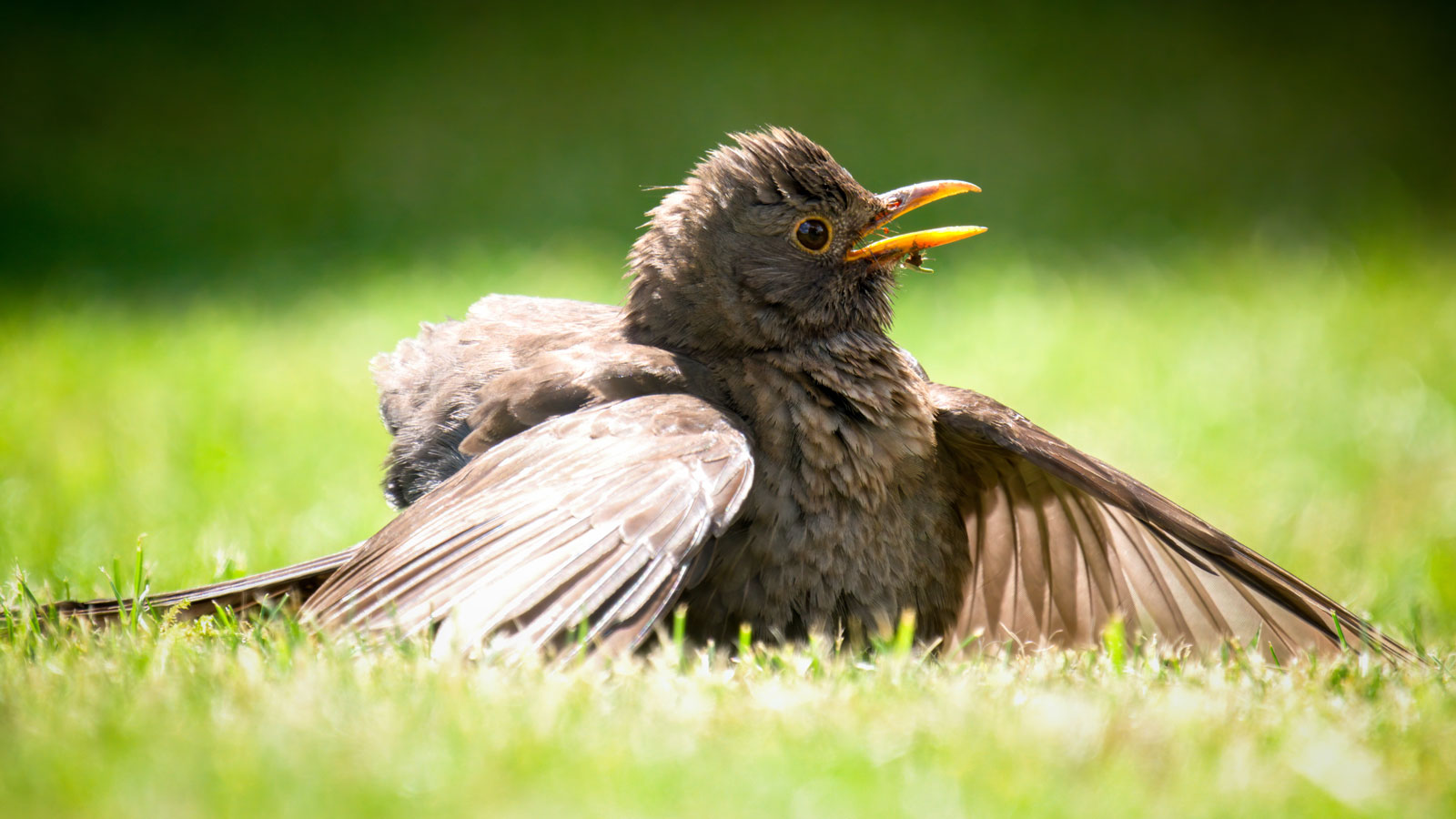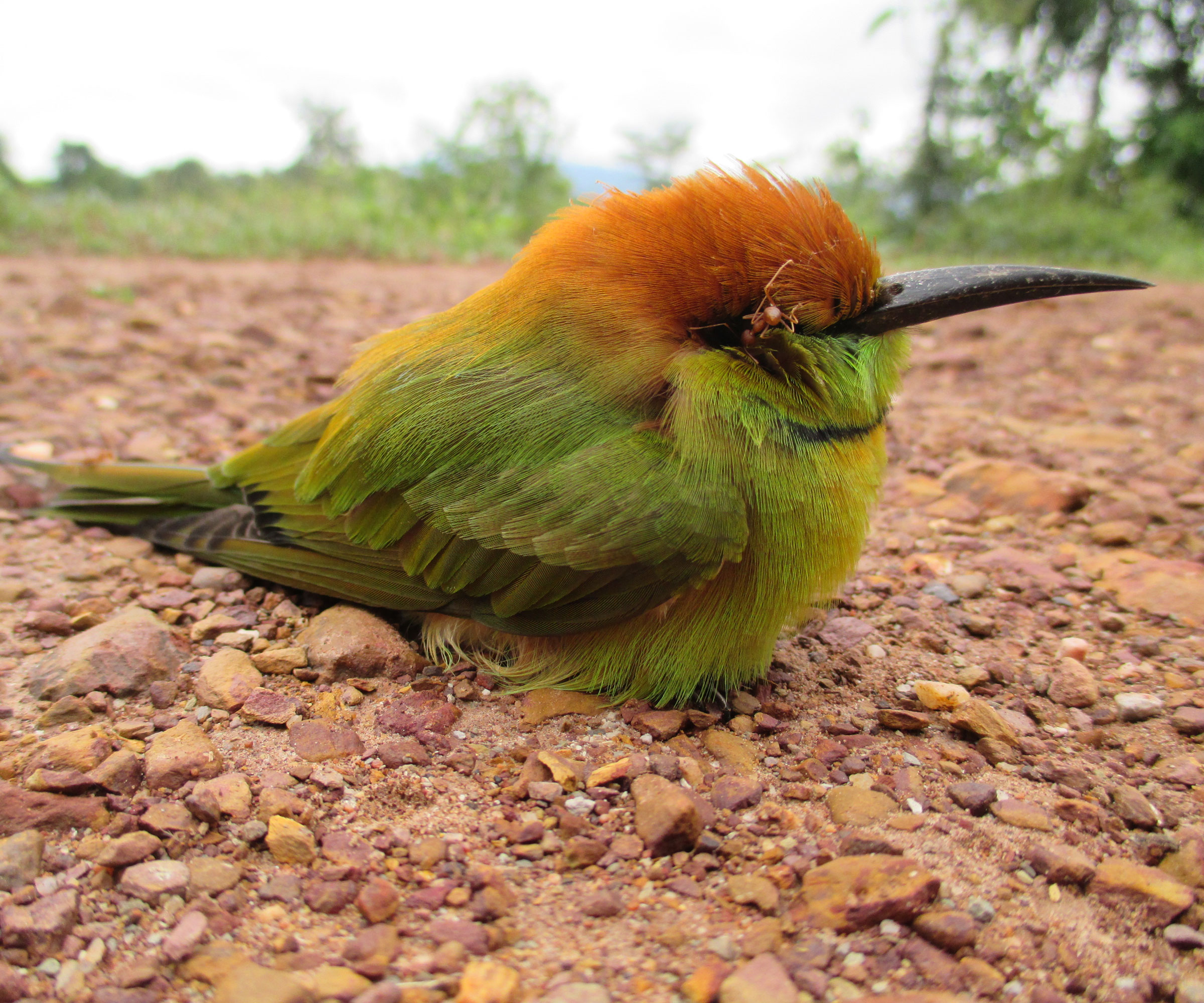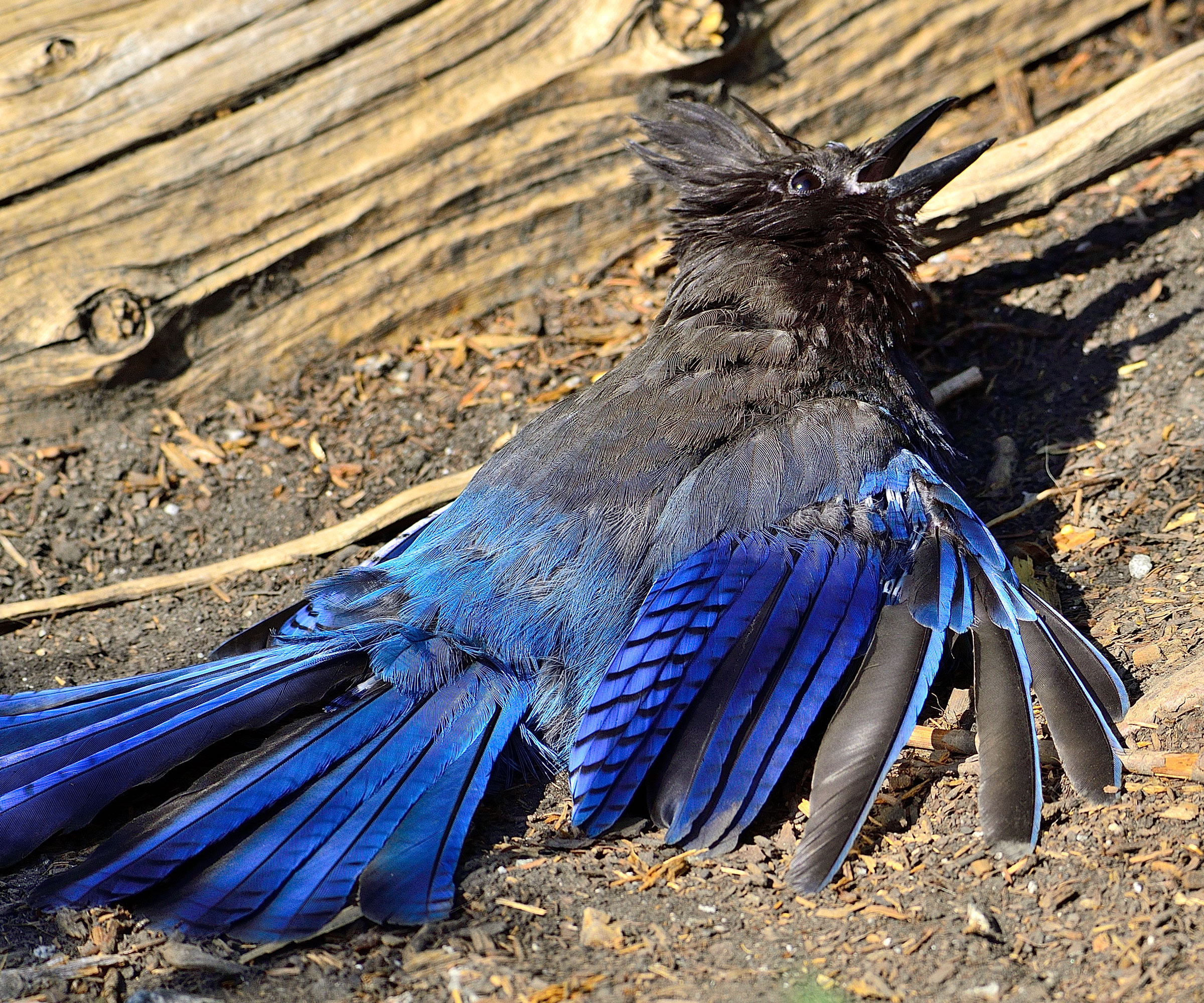Ever Seen Anting Birds In Your Yard? Discover The Bonding Antics Of Birds And Bugs
If the notion of anting birds sounds baffling to you, you’re not alone – but it’s a common activity for birds in summer. Here’s why birds seek out ants in summer


The joys of gardening include more than just plants. Being in the garden also means enjoying your local wildlife. While you might see and enjoy all kinds of animals in the garden, birds are often favorites. They’re fun to attract to the yard and are full of joy and surprise as they go about their lives in your yard.
Among the many charming bird behaviors you’ll witness when birds flock to your garden, you might see them wriggling on the lawn during the height of summer and into fall. What you are seeing is the phenomena known as anting birds. If you don’t know what this behavior is, it can seem alarming. Rest assured, it is natural – but why do birds do it?
What Exactly is Bird Anting?
Anting in birds is a process where they actively or passively allow ants to move over their feathers. A bird that is actively anting picks up an ant with its beak and rubs it over its feathers. If you’re not close enough to see the ant, this might just look like preening or cleaning. It can look odd if you’re used to seeing birds cleaning at a bird bath or on a tree branch – but this is a natural process.
Passive anting looks more troubling, The bird stretches out its wings and tail feathers and gets low to the ground. This allows ants to get on their feathers. You’ll often see a bird do this near an ant nest. The bird might aggravate the nest first. Sometimes it might even sit on top of the ant nest. It can look a little odd, but again, the bird doesn’t need your help. It’s doing this on purpose.

So why do birds do this? Leading theories are related to cleanliness. We know that birds take dust and water baths. It is said anting is likely another way to bathe. You’ll mostly see bird anting in late summer and fall, when many birds molt, so it is also linked to this natural process.
Many different bird species and several songbirds engage in anting behavior throughout the US. Crows and jays are some of the types of birds most often seen anting. You can also see anting in robins, wrens, cardinals, starlings, bluebirds, turkeys, grouse, juncos, orioles, red-winged blackbirds and sparrows.
Why Do Birds Rely On Ants?
So why ants? Why not other types of insects? Studies of birds anting indicate that they usually select ants from the subfamily Formicinae. These ant species are characterized by the fact that they produce formic acid. Some researchers believe ants are using formic acid to kill or evict parasites and manage bacteria and fungi.
Sign up for the Gardening Know How newsletter today and receive a free copy of our e-book "How to Grow Delicious Tomatoes".
For anyone who might be thinking of ways to keep ants away, this can seem genuinely bizarre. But there is no evidence that birds use other types of insects for this cleaning behavior. They specifically choose ants that produce formic acid, ants that are more active, and that do not bite or sting. Here are the main ideas for this:
- To Help with Pests: Coping with pests is one of the most likely explanations for anting. The birds you see in your garden are vulnerable to various pests that cause irritation, infection, or worse. Lice and mites can damage feathers. They can be irritated or even killed by formic acid. The formic acid might also kill fungi and bacteria that can cause infections and weaken feathers.
- To Help with Feathers: Managing pests and fungal or bacterial infections is important for birds trying to maintain healthy feathers. Because anting behavior is most common when birds are molting, it is likely they are also using the ants to soothe the irritation of this natural process. Some bird experts even suggest that birds might use ants to cover themselves in substances that feel good.

Do Birds Eat Ants After Anting?
Sadly, anting is not always so beneficial for the ants. They are being used by the birds, and sometimes the birds eat them when they’re done. Studies investigating anting behavior found that birds tend to eat ants that are not useful to them – specifically, those that do not produce formic acid. Birds also sometimes eat the useful ants after their anting behavior is concluded.
Still, it’s a fascinating process to catch in your garden. To increase your chance of catching sight of anting birds, make sure you are encouraging as many birds to your yards as possible. Make sure you have placed out some bird feeders. It’s also worth investing in a good bird bath if you haven’t already – Amazon has a good range of freestanding, hanging and mounted bird bath options.
Interested in more ideas for bird-friendly gardening and expert advice delivered straight to your inbox? Sign up for the free Gardening Know How Newsletter!
Frequently Asked Questions
Are Ants Harmful to Birds?
Ants are not usually harmful to birds. Birds mostly live harmoniously with ant species. Ants that sting or bite can be harmful, but they don’t pose a serious risk to birds. One potentially dangerous species to birds is the southern fire ant in the Southwest, but such an infestation usually targets newly hatched chicks and these ants are not common in gardens.
Which Ants Are Used for Anting?
Birds typically choose ants that produce formic acid. These are species that belong to the Formicinae subfamily. They also tend to choose ants that are more active and moving around. Common ants in this group include carpenter, weaver and leafcutter.

Mary Ellen Ellis has been gardening for over 20 years. With degrees in Chemistry and Biology, Mary Ellen's specialties are flowers, native plants, and herbs.